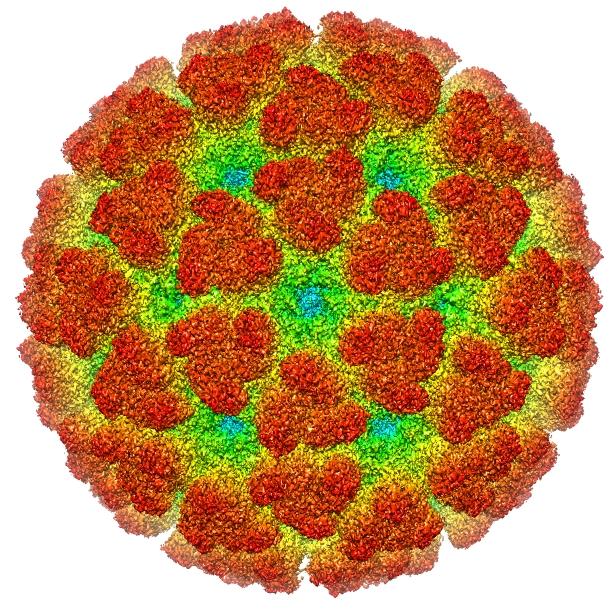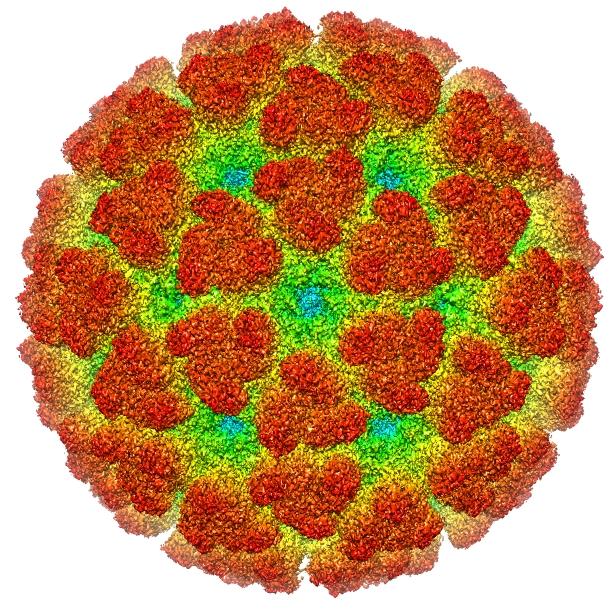
What if a single vaccine could protect people from infection by many different viruses? That concept is a step closer to reality.
Researchers at Washington University School of Medicine in St. Louis
have identified "broadly neutralizing" antibodies that protect against infection by multiple, distantly related alphaviruses – including Chikungunya virus – that cause fever and debilitating joint pain. The discovery, in mice, lays the groundwork for a single vaccine or antibody-based treatment against many different alphaviruses.
"There is a lot of emphasis on identifying and understanding broadly neutralizing antibodies for other viruses — HIV, hepatitis C virus, dengue virus, influenza virus — but most of those antibodies neutralize different strains of the same virus," said senior author Michael Diamond, MD, PhD, a professor of medicine and director of the Division of Infectious Diseases and Vaccine Development in the Center for Human Immunology and Immunotherapy Programs. "What we've identified here are antibodies that actually neutralize several different alphaviruses."
The research is available online in the journal Cell and will appear in the Nov. 19 print issue.
The viruses Diamond and colleagues studied are arthritogenic alphaviruses, so-named for their characteristic symptoms of fever followed by arthritis-like joint pain. These mosquito-borne viruses typically cause only sporadic outbreaks, although Chikungunya has been identified in Africa, Asia, Europe, South America and even the southern United States.
In recent years, the virus has caused millions of infections annually across the globe. So far in 2015, 650 cases have been seen in U.S. residents, largely among travelers returning from the Caribbean, where they were infected. There is no vaccine or treatment for Chikungunya or other alphaviruses.
As part of the study, Diamond and his colleagues screened 60 neutralizing mouse and human antibodies against Chikungunya and determined that 10 react against three or more different alphaviruses that cause arthritis-like symptoms. They also identified a small piece of the alphavirus called an epitope that is identical across the arthritogenic alphavirus family.
In follow-up work in cell cultures, they showed that antibodies that recognize this epitope also protect against infection by multiple alphaviruses. The antibodies blocked multiple steps in the viral life cycle, including the virus's ability to enter or exit host cells.
To confirm that the antibodies could protect animals from disease, the researchers infected mice with three different alphaviruses: Chikungunya, the closely related O'nyong'nyong virus, or the more distantly related Mayaro virus. The mice then were treated with the each of two of the most potent broadly neutralizing antibodies, and both antibodies markedly reduced joint disease caused by any of the viruses.
The researchers then identified a section of an alphavirus protein as the key binding site for the cross-protective antibodies. When such an antibody binds to this site, it changes the three-dimensional structure of the proteins on the surface of the virus, thus providing an explanation for how these antibodies prevent viral infection.
"If you can make an antibody response against this region, you may be able to protect against many viruses in the family," said Diamond. "Our group is making proteins now that focus on this epitope, and we're planning to start immunizing animals soon to see if we generate the right kinds of antibodies."
People who are infected with alphaviruses produce antibodies against many viral epitopes, some of which are not protective. This could lead to a weak immune response that gives the virus time to multiply and cause disease. People who are immunized with proteins expressing the key epitope identified by the researchers, however, should be able to quickly produce the "right" protective antibodies, thereby short-circuiting the disease process.
"We have more work to do but are encouraged that targeting this epitope could be a viable strategy for developing vaccines or treatments against Chikungunya and other related viruses that cause significant disease worldwide," Diamond said.
###
The research is supported by the National Institutes of Health (NIH), grants R01 AI095366, R01 AI089591, HHSN272200900055C and R01 AI114816; the Dutch Organization for Scientific Research; the University Medical Center Groningen; and a NRSA-Infectious Diseases training grant.
Fox JM, Long F, Edeling MA, Lin H, van Duijl-Richter MKS, Fong RH, Kahle KM, Smit JM, Jin J, Simmons G, Doranz BJ, Crowe, Jr. JE, Fremont DH, Rossmann MG and Diamond MS. Broadly neutralizing alphavirus antibodies bind an epitope on E2 and inhibit entry and egress. Cell. Online Nov. 5, 2015.
Washington University School of Medicine's 2,100 employed and volunteer faculty physicians also are the medical staff of Barnes-Jewish and St. Louis Children's hospitals. The School of Medicine is one of the leading medical research, teaching and patient-care institutions in the nation, currently ranked sixth in the nation by U.S. News & World Report. Through its affiliations with Barnes-Jewish and St. Louis Children's hospitals, the School of Medicine is linked to BJC HealthCare.





